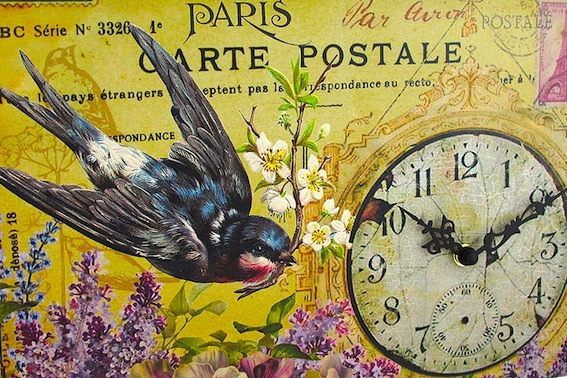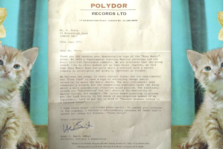Does time really go faster as we get older? Tony Barrell examines Life Acceleration Syndrome
Many people, when they reach a certain age, remark that time seems to pass more quickly than when they were young. Suddenly the days, weeks and months seem to zip by. One minute it’s January, and the next it’s November. One minute they’re ringing in the new millennium, and the next it’s 2016.
“Who Knows Where the Time Goes?”, as the British folk legend Sandy Denny once asked in a song. Does time really speed up as we get older? I’ve devoted a lot of thought to this lately, and I’ve come out the other end with a theory.
Imagine being a very young baby. Like most of us, a baby is subject to a variety of experiences on any given day – including sights, sounds, smells, tastes, different environments, and interactions with other people. However, for the baby, many of these will be entirely new experiences. One day, this freshly formed human being might see raindrops, hear a car horn or a dog bark, visit a park, smell orange blossom, glimpse a very tall office building, and fall out of his pram onto a cobbled street – all for the first time. All of these experiences will register as novelties, and at very few points will he ponder, like a world-weary, jaded adult: “Oh, I’ve experienced this before.”
I believe that our memories, and our reflections on them, form the impression that our lives are accelerating
But as you grow up, you inevitably find that fewer and fewer events are entirely novel. The raindrops, car horns, barking dogs, orange blossom, parks and office buildings all become old hat. From time to time, you will still have brand-new experiences to file away – starting school and university, dining in a restaurant, going on holiday, having a snog, starting a job, breaking the law, getting married, cooking a meal and learning to play the bassoon. If you reflect on your youth now, you’ll doubtless be able to recite your own colourful catalogue of “firsts”.
As you approach middle age, those firsts usually become even thinner on the ground. You’ve pretty much seen it all, been there, done that. When you file memories away, you might put them in imaginary folders – Holidays, Dinner Parties, Concerts, Sexual Encounters, Embarrassing Moments – and a lot of those categorised experiences will begin to blend together. “Oh yes, I remember it well,” you might say, just like Maurice Chevalier – but, as with Maurice in the famous song, you really don’t.
I believe that our memories, and our reflections on them, play a big part in forming the impression that our lives are accelerating. If you retrospectively assess the past year (whether consciously or subconsciously) and you don’t recall many novel experiences, you’re perfectly justified in concluding that your Novelty/Time Ratio (NTR) is decreasing – which creates the illusion that time is speeding up.
The obvious antidote to Life Acceleration Syndrome is to start packing your days with exciting new events
Of course, we don’t have to accept this irksome state of affairs. The obvious antidote to Life Acceleration Syndrome is to start packing your days with exciting new events. You might go skydiving, join an orchestra, build a house, set up a circus, write a dozen stage plays, and have simultaneous affairs with 14 different lovers. (If you’re a man, people will start prattling about a “midlife crisis”, but you won’t have time to listen to them.) When you later come to reflect on the year’s achievements, your NTR is likely to hit the roof, which ought to create the illusion that your life is slowing down.
It’s worth a try, isn’t it? Where can I buy performing seals, and do you fancy dinner? ♦
© 2014 Tony Barrell









0 comments found
Comments for: IS YOUR LIFE SPEEDING UP?